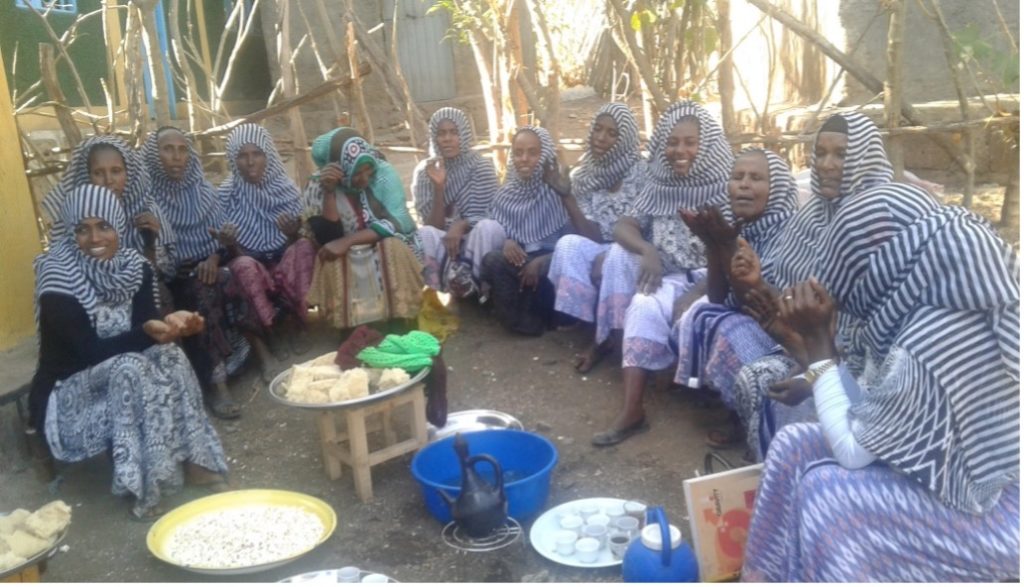Stepping up women’s empowerment and accountability in Ethiopia
In a recent conversation with Martha Woyessa, Executive Director of CHS Alliance member Women Empowerment-Action, a pioneering feminist and women-led organisation in Ethiopia, we explored the transformative journey they embarked on by verifying against the Core Humanitarian Standard (CHS). This interview sheds light on the remarkable improvements they’ve achieved for women across Ethiopia since embracing the CHS.
What effect has verifying against the CHS had for Women Empowerment-Action and the people you support?
Martha: Since 2018, CHS verification has revolutionised the way we work. As a result of being measured against the CHS by HQAI, we’ve revised numerous policies and developed over 40 Standard Operating Procedures to make sure all our projects meet the CHS Commitments that the people we work with deserve. By continuously training our staff on the CHS principles over this time, we all better understand and can address the needs and voices of the communities we serve.
“After so many years of CHS improvements, the groups we work for are now more informed about their rights and can provide feedback in their local languages, which has significantly improved our service quality. For instance, after we changed which languages we could receive feedback in, we found out that communities wanted solar lanterns instead of energy-saving stoves and so we switched. This saved us a lot of money and staff time. It also showed that we were serious about being responsive to community needs, which built up the most important commodity of all – trust.”
Being the first local NGO in Ethiopia to verify against the CHS has also helped us grow as an organisation. Integrating CHS ethics into our staff performance evaluations has created a high performing team that are united in prioritising the rights of the people we help. Due to improvements made after CHS verification, we now have better processes to develop proposals for donors and partners. The evidence that CHS verification provides has also boosted our ability to manage partnerships, mobilise resources and deliver whole projects, leading to a substantial increase in our funding and areas where we operate.
Our experience shows using the CHS as a tool for improvement significantly strengthens an organisation like ours, one deeply committed to furthering the rights of women, with accountability as a cornerstone of our operations. We are now one of the strongest and largest women-led civil society organisations in Ethiopia.
What role has CHS Alliance membership played in these improvements?
Martha: Membership of CHS Alliance has provided us with invaluable resources and training opportunities.
We’ve participated in so many useful trainings on CHS concepts, complaints handling mechanisms and Protection from Sexual Exploitation, Abuse and Harassment (PSEAH), all of which bolstered our organisational capacity to meet the CHS commitments.
Most recently, partnering with CHS Alliance on the Closing the Accountability Gap project has made a profound change to how we can work. This project allowed us to better protect and support women and girls living in Internally Displaced People (IDP) centres in Amhara from SEAH. For the first time, we had the resources to shape this project from start to finish entirely around what potentially vulnerable women and local women’s groups wanted.
It has been an incredible experience to co-produce new solutions to protect women and girls from harm caused by aid workers in this region, showing them that we listen, value and respect their ideas and experiences.
Not only that, but we act on them. The project has contributed a lot to building awareness among IDPs and the host community on PSEAH and potential reporting mechanisms.

A women’s group supported by WEA discussing their rights during their weekly meeting. Credit WEA.
What message would you like to convey to other organisations considering embarking on their CHS journey?
Martha: We have shared our experiences with various networks and consortiums in Ethiopia, inspiring other national organisations to pursue CHS verification.
We encourage other national NGOs worldwide to also embrace CHS verification. The process of verifying your performance against the CHS means you are shown clearly how to improve your organisation so the communities you work with become equal and respected partners. It also gives you a precise and ‘personalised’ guide on how to build up a stronger organisation that can take on more funding and leadership roles in your region. Being a part of the CHS Alliance network then offers access to a wealth of knowledge, training, tools, resources and peer support groups on how to implement this guidance and make those improvements.
Last but not least, verification also provides strong evidence of how well your systems are working, something that donors and large partners really value.
In summary, CHS verification and CHS Alliance membership have been pivotal in our journey towards accountability and excellence, helping us to make a meaningful difference in the lives of the women and girls in Ethiopia.
